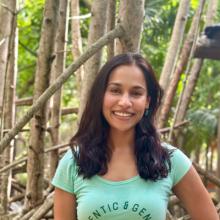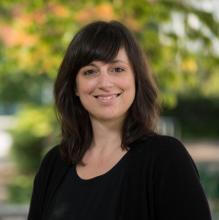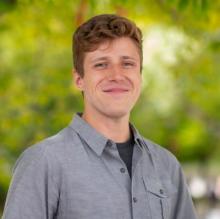PSI is a great opportunity to get more innovative and creative PhD research and dissertations, as PSI encourages us to go beyond the usual academic work and provides us with support and connections for that.
Research Description
Swidden cultivation, practiced by local and Indigenous communities in tropical forest landscapes, is blamed as the primary driver of deforestation. This mainstream view leads to forest management policies prohibiting the practice, despite lack of obvious scientific evidence to support that claim. Many authors have pointed out the lack of knowledge around this farming system, its diversity and its long-term environmental impacts. While recent reviews and meta-analysis have pointed out to the benefits of swidden cultivation on forest cover, carbon storage, biodiversity conservation, erosion prevention and soil fertility compared to semi-permanent or permanent agriculture, this farming system is still portrayed as environmentally destructive. In the Philippines, like in many other Asian countries, the negative perceptions around swidden cultivation have led to policies penalizing its practice. My research intends to shed light on the reason why the negative narrative and views persist, despite gaps in the understanding of swidden cultivation, and will document the way Indigenous groups are using this land use system today. Through field work in Northern Luzon in the Philippines, the research will seek to understand the motivations for stopping or continuing swidden cultivation and, if continued, how this practice can contribute to Indigenous Peoples’ food sovereignty, as compared to the alternatives chosen or offered to them. Findings will highlight different actors’ perceptions and contribute to deepen the understanding of the potential contribution of swidden cultivation to deforestation or otherwise. While the research will focus on the Philippines and seek to influence a revision of the forest management policies, its findings will be valid across tropical forest nations as well as in countries of the North like Canada, where Indigenous communities are trying to affirm their self-determination and revitalize their ancestral practices on their traditional territories. Findings will seek to inform future environmental and conservation programmes and policies globally, using a knowledge mobilization strategy that will target not only the academic sector but also the conservation and development state and non-state actors.
What does being a Public Scholar mean to you?
This means being part of a cohort of like-minded students from a variety of backgrounds, countries and research interests, and I'm really looking forward to interacting with and learning from them. This also means getting material and social support for this long journey that is a PhD, which is so important.
In what ways do you think the PhD experience can be re-imagined with the Public Scholars Initiative?
I think the PSI is a great opportunity to get more innovative and creative PhD research and dissertations, as PSI encourages us to go beyond the usual academic work and provides us with support and connections for that.
How do you envision connecting your PhD work with broader career possibilities?
My PhD work is completely linked with my ambitions and goals for broader career possibilities, in that I'm working with local NGOs in the Philippines and I would like to continue collaborating with them after my PhD is complete. I do not want to limit myself to a career in the academic world and I hope that my PhD work will pave the way for a career between research, implementation and advocacy work for Indigenous Peoples in the Philippines and beyond.
How does your research engage with the larger community and social partners?
I am doing my field work in the Philippines as an affiliate researcher with three national NGOs: Mabuwaya, the Philippine Eagle Foundation and the Legal Rights and Natural Resources Center, who work on environmental and conservation issues while supporting Indigenous Peoples achieving self-determination. Therefore, my PhD work is not only aimed at generating another academic dissertation, but also discussion and policy papers that will influence forest resources management policies in the country for the promotion of Indigenous Peoples’ food sovereignty and the conservation of natural resources.
Why did you decide to pursue a graduate degree?
After more than ten years of professional experience spanning across Africa and Asia in the development and humanitarian sector and a few years after having remotely completed a MSc in Sustainable Development with SOAS, I felt the urge to continue studying at a PhD level on a subject that fascinates me: forest resources management and Indigenous Peoples. My MSc thesis was about the potential and threats brought by REDD+ to Indigenous Peoples' traditional livelihoods and rights in the Philippines, and I wanted to build on this research. I felt that a PhD on swidden cultivation in the Philippines was a timely and deeply relevant subject for which I was ready to spend four years of my life.
Why did you choose to come to British Columbia and study at UBC?
First, studying in the Faculty of Forestry at UBC was a long-time dream for the great programs it offers and its faculty members. Also, the location of UBC in British Columbia was for me a great fit as First Nations are trying to revitalize their ancestral practices, in particular cultural burning, which has a lot of similarities with swidden cultivation.




